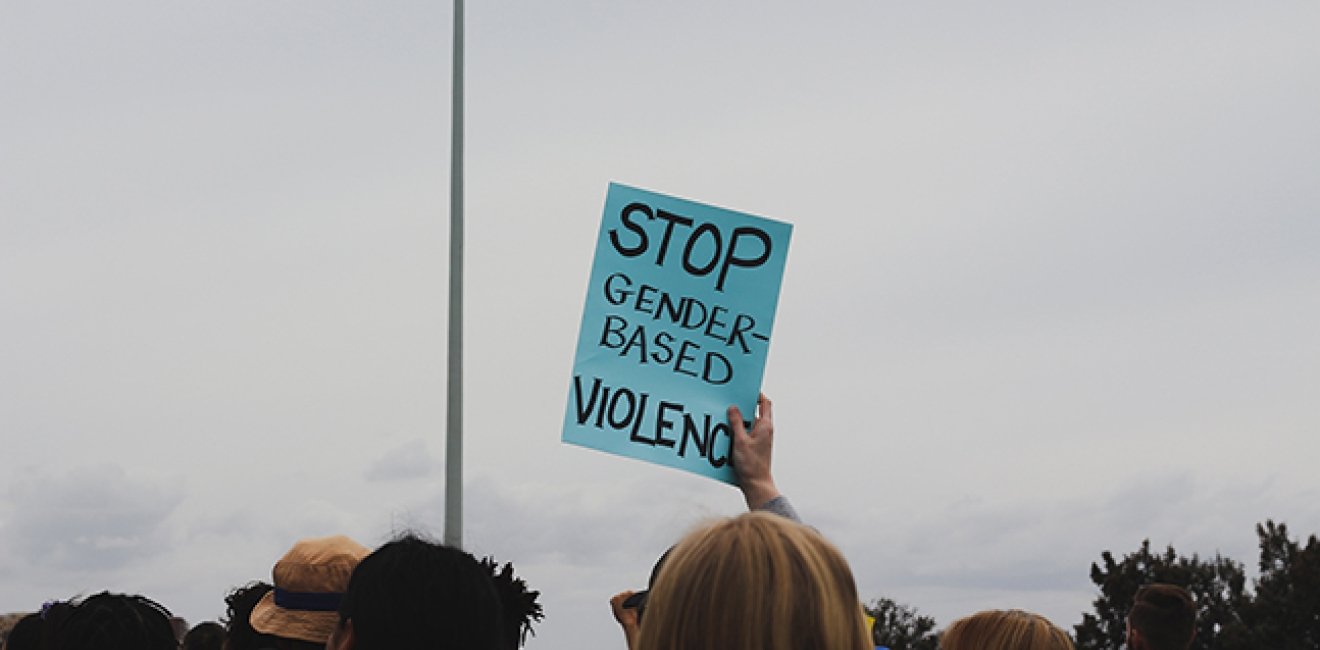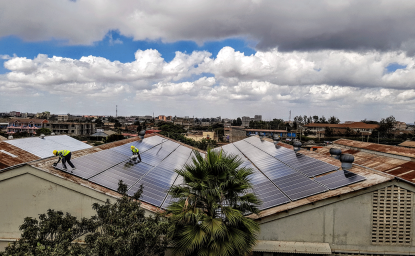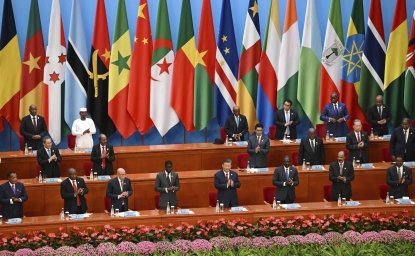
A blog of the Africa Program
Whether you are in South Africa, the United States, Zimbabwe, or Ethiopia, there is an urgent need for dialogue to bridge differences and prevent further societal violence. In South Africa, successful negotiations between liberation movements and the National Party that led to the first democratic government in 1994 did not, unfortunately, also lead to broad acceptance of dialogue and negotiation as a usual practice to bridge social and political differences.
While conditions in South Africa have changed considerably over the past 30 years, the ghosts of colonialism and apartheid remain. South Africa, like the United States, is dealing with the consequences of oppression, inequality, and physical, emotional, and structural violence experienced by people of color. A consequence of this legacy is a high level of interpersonal violence, including gender-based violence; and associated trauma.
Overcoming this legacy will not be quick and easy. It will require the collective effort of government, civil society, and foreign partners. The Violence Prevention Forum (VPF) is an example of how South Africa is once again bridging divides to find common ground to address a complex and enduring social problem.
In 2015 researchers, non-governmental organizations and government officials examined how to use the vast knowledge that exists in different sectors to improve South Africa's response to violence. One question was why high levels of violence against women and children persisted despite broad efforts that included promising primary prevention programs, research evidence, government policies and systems, and funding support from partners.
A key finding was the dearth of opportunities for policymakers, researchers, and program implementers working to prevent violence to share and learn together. Seminars, conferences, and government-led coordination platforms were often unequal, exclusive, and inadequate for facilitating deeper understanding and knowledge-sharing between policymakers, researchers, and community-based organizations.
To address this shortcoming, in 2015 South Africa's Institute for Security Studies (ISS) joined with UNICEF to initiate the VPF to offer a platform for inter-sectoral dialogue on violence prevention. The forum enables multisectoral collaboration to ensure that effective programs and interventions to prevent violence are available and sustained across the country in communities where they are needed.
Over the past six years, 10 government departments, 16 research institutes, 14 NGOs, and two bilateral/multilateral development partners have met twice a year to hold dialogue and explore solutions to violence in South Africa. They have done this in a unique process that is solution-focused and value-driven. Hierarchies of knowledge have been lowered by having participants sit in a circle without laptops and technology to distract; different types of evidence are shared in informal conversation, and; all inputs are respected.
As a result, professionals from different sectors have been able to build trusting relationships. These relationships have become a vehicle for information-sharing between and within sectors in ways that were not possible before the forum existed. Evidence of this includes the co-authorship by forum participants of four policy briefs. Participants also collaborated on a report detailing sectoral contributions to achieving the goals of the INSPIRE framework to prevent violence against children. In addition, the South African Parenting Programs Implementers Network was formed when organizations delivering evidence-based parenting programs recognized they could benefit from working together, learning from one another, and raising funds as a collective.
In short, the VPF has built a mutually supportive community that promotes violence prevention.
A recently completed evaluation of the VPF found that the emphasis on building relationships and encouraging deliberative dialogue between sectors has been effective and has influenced approaches to prevent violence in South Africa. This includes:
- VPF participants participated in the Interim Steering Committee that drafted the National Strategic Plan for Gender Based Violence and Femicide (NSP). There is evidence that their participation is associated with the inclusion of a focus on children and the prevention of violence (not only criminal justice system responses) in the NSP.
- Forum participants informed a provincial safety policy that lays the groundwork for the use of evidence in preventing violence.
- The forum contributed to a decision by the National Treasury to increase the budget of the Department of Social Development in 2018.
These achievements relied on five elements working together:
- Leadership: Legitimate, capable, and strategic leadership was able to raise funds, give direction to facilitators, and connect the forum to national policy developments. A secretariat holds the process together.
- Values: The forum is guided by eight values that were co-developed by participants and are applied during discussions. By being consistent in the application of forum values, a safe space to hold difficult conversations has been created.
- Inter-sectoral steering: The forum is steered by a multisectoral group that works closely with facilitators and the conveners.
- Facilitation: The forum meetings are facilitated by experienced, skilled experts drawing on a range of methods and approaches including the Alternatives to Violence Project and deep democracy.
- Strategic support: Communication and administrative support enabled the forum to develop quality outputs with clearly articulated messages.
Over the years the ISS and its partners have learned that:
- Bringing together individuals from different sectors and ranks to work toward a goal requires capable, intuitive, and empathetic leadership. Authoritarian leadership can alienate partners, while indecisiveness can make a group dysfunctional. Leadership must be democratized. The forum achieved this by having a multi-sectoral steering committee.
- When dealing with a complex social problem like violence, each stakeholder will hold a perspective on the nature of the problem and most effective way to address it. These perspectives can often differ or even conflict. Left unspoken and unacknowledged they can be unseen barriers to progress. Implementing an interrogative dialogue process where nothing is taken for granted or considered obvious helped forum participants unearth different perspectives on violence in a safe space. Mindful that what is known about violence is emergent, the forum allowed established knowledge to be challenged and did not automatically favor research evidence over other forms of knowledge.
- Historical trauma inflicted by violent systems like apartheid in South Africa has a long-term effect that continues to shape relationships between individuals and organizations. Integrating mindfulness practice and empathy-building exercises in group processes helped individuals become aware of barriers to effective relationships and overcome some of the filters created by trauma. Participants started listening and learning from each other.
- Effective multi-sector processes require flexible funding. Bringing people together and holding a quality process costs money, and the outcomes are not always easy to predict.
- Any effective group process requires good facilitation that is context relevant, and understands and manages group dynamics in ways that enable each individual to have a role and bring to bear their capabilities. Researchers do not always have these skills. Independent facilitators without vested interests in the outcome of the process have been key to success.
Interpersonal and collective violence will not disappear just because we are speaking to each other. However, we stand a much better chance of addressing the structural factors that drive violence if we work together across sectors, understand each other's roles, and use the knowledge generated by all sectors.
Matodzi Amisi is a Research Associate at the Institute for Security Studies' Justice and Violence Prevention Programme. She is also an evaluation consultant with the Centre for Learning on Evaluation and Results (CLEAR-AA) working to support African governments to establish and strengthen evaluation systems. She is a legacy chairperson of the South African Monitoring and Evaluation Association.
Chandré Gould is a Senior Research Fellow at the Justice and Violence Prevention Programme at the ISS. She is a former Southern Voices Network for Peacebuilding Scholar at the Wilson Center. She convenes the Violence Prevention Forum.
Photo source: A protester holding a banner saying "stop gender-based violence" at a protest in Port Elizabeth, South Africa. Editorial credit: Bohemian Photography/Shutterstock.com. Photo ID: 1753502714. Source: https://www.shutterstock.com/image-photo/port-elizabeth-south-africa-march-2019-1753502714.
Authors

Senior Research Fellow, Institute for Security Studies

Africa Program
The Africa Program works to address the most critical issues facing Africa and US-Africa relations, build mutually beneficial US-Africa relations, and enhance knowledge and understanding about Africa in the United States. The Program achieves its mission through in-depth research and analyses, public discussion, working groups, and briefings that bring together policymakers, practitioners, and subject matter experts to analyze and offer practical options for tackling key challenges in Africa and in US-Africa relations. Read more





